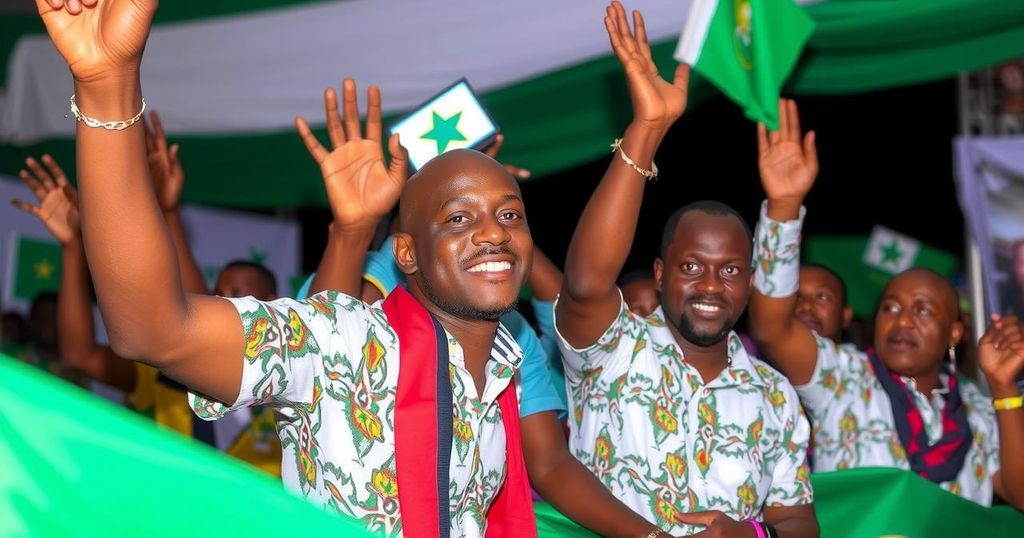The Ghanaian opposition claims victory for John Mahama in the recent presidential election amid a struggling economy. As the Electoral Commission continues to tally official results, preliminary counts indicate Mahama received 56.3% of the votes, while Vice President Bawumia garnered 41.3%. The economic crisis remains a pivotal issue influencing voter sentiment as Ghana approaches a critical political transition.
On Sunday, Ghana’s opposition party, the National Democratic Congress (NDC), asserted that preliminary results from the recent presidential election indicated their candidate, John Mahama, emerged victorious. This claim comes even as the Electoral Commission is in the process of collating official results. The election, held on Saturday, was a critical contest between Mahama and the ruling New Patriotic Party (NPP) candidate, Vice President Mahamudu Bawumia, as both aimed to address the pressing economic issues facing the nation.
The election reflected the public’s growing concern regarding Ghana’s struggling economy, marked by recent debt defaults, currency devaluation, and high inflation rates that necessitated a $3 billion bailout from the International Monetary Fund (IMF). Voters were selecting a successor to President Nana Akufo-Addo, who is stepping down after serving two four-year terms, while also electing a new parliament.
According to NDC spokesperson Sammy Gyamfi, the party’s internal analysis indicated Mahama received 56.3 percent of the votes compared to Bawumia’s 41.3 percent. Gyamfi remarked, “It is very clear the people of this country have voted for change,” underscoring the dissatisfaction with the incumbent government. Meanwhile, preliminary counts from ChannelOne TV also showed Mahama leading, with results from 42 of the 276 constituencies reported.
As underscored by Bossman Asare, Deputy Commissioner of the Electoral Commission, the official tallying process is still underway, with regional results yet to be submitted. Official results are anticipated by Tuesday. Although the voting process was mostly peaceful, there were reports of violence, including two fatalities related to gunfire in the northern and central regions.
Historically, Ghana has been noted for its democratic stability, with the NPP and NDC alternating power since the restoration of multi-party politics in 1992. Bawumia aimed to secure an unprecedented third consecutive term for the NPP, amidst criticisms regarding the economic management under President Akufo-Addo. Although inflation has decreased from over 50 percent to approximately 23 percent, economic challenges remain a significant concern for voters, thereby facilitating Mahama’s challenge to reclaim the presidency after previously unsuccessful attempts in the past two elections.
Ghana is a nation with a rich history of democratic governance and political stability, marked by alternating leadership between two major parties since 1992. The recent presidential election was particularly significant in the context of economic challenges facing the country, including high inflation and the aftermath of a major IMF bailout. These factors have intensified public interest in the election outcomes, as voters seek a response to economic hardship and instability that have persisted for years.
In summary, the recent presidential election in Ghana signifies a potential shift in political leadership, as the opposition claims victory for John Mahama amidst critical economic circumstances. With discontent over government policies and high living costs influencing voter sentiment, the final results from the Electoral Commission will be closely watched to confirm or challenge these preliminary claims. The outcome may lead to fundamental changes in governance, reflecting the public’s call for a new direction.
Original Source: www.barrons.com






